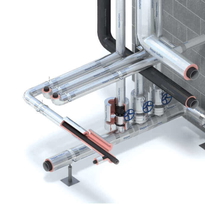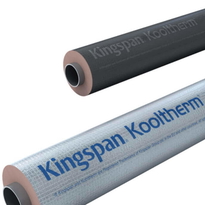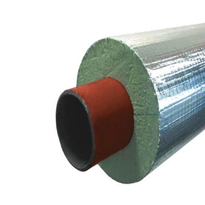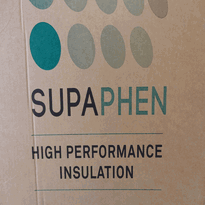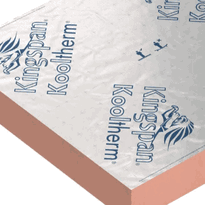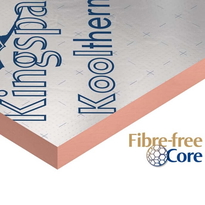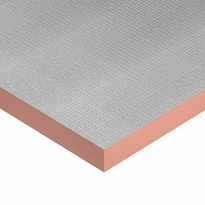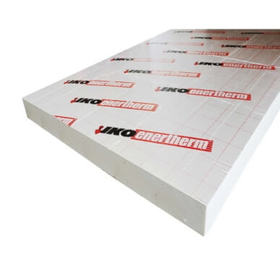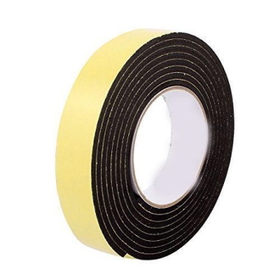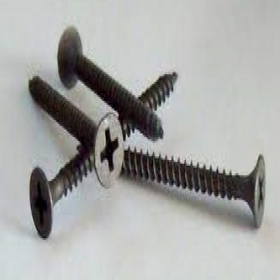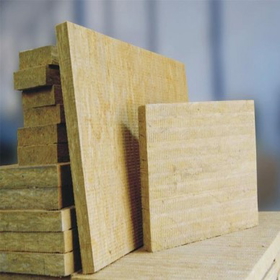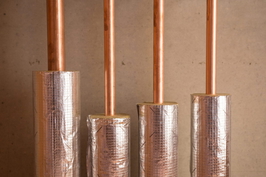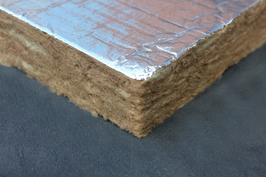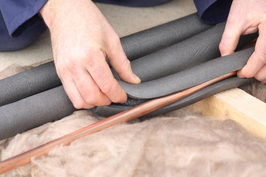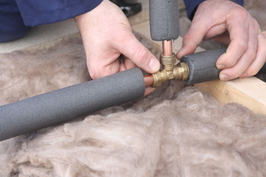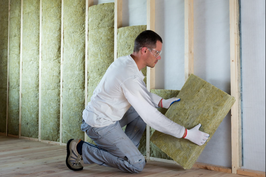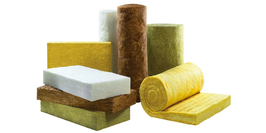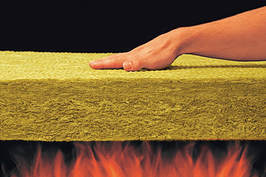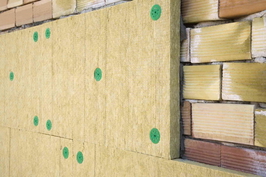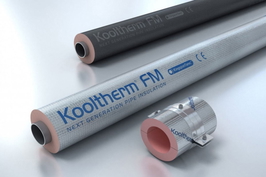Phenolic Foam Insulation
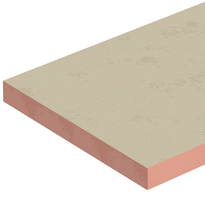
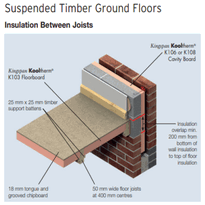
Kooltherm K103 Floorboard- Phenolic Foam Insulation By Kingspan - 2400 x 1200mm
Similar Categories
Phenolic Foam Insulation: A Guide for Homeowners and Contractors
Phenolic foam insulation is a type of high-performance insulation material that is used to reduce heat transfer and improve energy efficiency in various industrial and residential applications. Phenolic foam insulation has a closed-cell structure, which means that it has tiny air pockets that are trapped within the material.
This makes it more resistant to moisture, fire, and thermal bridging than other types of insulation. Phenolic foam insulation also has a low thermal conductivity, which means that it can provide a high level of thermal insulation with a thin profile.
In this article, we will explain what phenolic foam insulation is, how it is made, what are its benefits, and where it can be used. We will also introduce some of the products that are available from our website Buy Insulation Online, we are a leading supplier of phenolic foam insulation boards in the UK.
What is phenolic foam insulation and how is it made?
Phenolic foam insulation is a rigid type of insulation that is made from phenolic resin, a synthetic polymer that is derived from phenol and formaldehyde. Phenolic resin is mixed with a foaming agent, a surfactant, and a curing agent, and then applied to a facing material, such as aluminium foil, kraft paper, or glass tissue.
The mixture expands to form a foam, which is then heated under pressure and cured in an oven. The resulting phenolic foam insulation board is then cut to the desired size and shape, and packaged for delivery.
Phenolic foam insulation boards have a density of about 35 to 60 kg/m3 and a thickness of about 20 to 120 mm12.
What are the benefits of phenolic foam insulation?
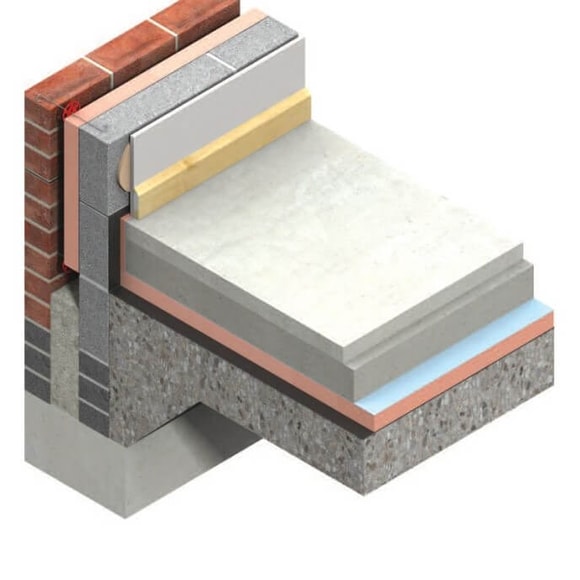 Phenolic foam insulation has many advantages over other types of insulation, such as mineral wool, polystyrene, or polyurethane. Some of the benefits of phenolic foam insulation are:
Phenolic foam insulation has many advantages over other types of insulation, such as mineral wool, polystyrene, or polyurethane. Some of the benefits of phenolic foam insulation are:
- High thermal efficiency: Phenolic foam insulation has a low thermal conductivity, which means that it can provide a high level of thermal insulation with a thin profile. The thermal conductivity of phenolic foam insulation ranges from 0.018 to 0.023 W/mK, depending on the thickness and the facing material. This is much lower than other insulation materials, such as EPS (0.038 W/mK), XPS (0.029 W/mK), PIR (0.022 W/mK), or mineral wool (0.035 W/mK). This means that phenolic foam insulation can help you meet building regulations and achieve the desired U-value with less material and space. For example, a 50 mm thick phenolic foam insulation board can provide the same thermal performance as a 100 mm thick mineral wool insulation board.
- Moisture resistance: Phenolic foam insulation has a high closed-cell content, which means that it has a low water absorption and vapour permeability. The closed-cell content of phenolic foam insulation is greater than 90%, compared to about 80% for PIR and 60% for XPS. This means that phenolic foam insulation can resist moisture penetration and prevent condensation, mould, and rot. Phenolic foam insulation also has a hydrophobic-facing material, such as aluminium foil, which adds an extra layer of protection against moisture. Phenolic foam insulation is suitable for humid and wet environments, such as bathrooms, kitchens, basements, and swimming pools.
- Fire performance: Phenolic foam insulation has excellent fire-resistant properties, which make it ideal for fire safety and protection. Phenolic foam insulation has a low flame spread and smoke emission and does not melt or drip when exposed to fire. Phenolic foam insulation is a thermoset material, which means that it hardens and chars in fire situations, forming a protective layer that reduces the heat transfer and oxygen supply. Phenolic foam insulation can achieve a Class 0 rating in the UK Building Regulations, which is the highest level of fire performance for insulation materials. Phenolic foam insulation can also meet the requirements of BS 476 Part 6 and Part 7, EN 13501-1, and ASTM E84.
- Environmental impact: Phenolic foam insulation is a sustainable and eco-friendly insulation material, which can help reduce the carbon footprint and energy consumption of buildings. Phenolic foam insulation is free of CFCs and HCFCs, which are ozone-depleting substances and have a low global warming potential (GWP) and ozone depletion potential (ODP). Phenolic foam insulation can also be recycled and reused, as it can be easily cut and reshaped. Phenolic foam insulation can help improve the thermal comfort and indoor air quality of buildings, as it is a fibre-free insulation material that does not produce dust or loose fibres.
Where can phenolic foam insulation be used?
Phenolic foam insulation can be used in a variety of applications, such as roofs, walls, floors, and ducts. Phenolic foam insulation can be used in both new-build and refurbishment projects and in both domestic and commercial buildings. Phenolic foam insulation can be installed in different ways, such as mechanically fixed, bonded, or loose-laid. Phenolic foam insulation can also be combined with other materials, such as plasterboard, plywood, or metal, to form composite panels or systems. Some of the common uses of phenolic foam insulation are:
- Roof insulation: Phenolic foam insulation can be used to insulate flat roofs, pitched roofs, and green roofs. Phenolic foam insulation can provide a high level of thermal insulation and moisture resistance for roofs, as well as fire protection and sound absorption. Phenolic foam insulation can be installed on the top, between, or under the roof rafters, depending on the design and the space available. Phenolic foam insulation can also be used with different types of roof coverings, such as bitumen, EPDM, PVC, or metal.
- Wall insulation: Phenolic foam insulation can be used to insulate external walls, internal walls, and cavity walls. Phenolic foam insulation can provide a high level of thermal insulation and fire performance for walls, as well as improve air tightness and sound insulation. Phenolic foam insulation can be installed on the outside, inside, or within the wall cavity, depending on the construction and the preference. Phenolic foam insulation can also be used with different types of wall finishes, such as render, brick, or cladding.
- Floor insulation: Phenolic foam insulation can be used to insulate solid floors, suspended floors, and underfloor heating systems. Phenolic foam insulation can provide a high level of thermal insulation and moisture resistance for floors, as well as reduce heat loss and heating costs. Phenolic foam insulation can be installed on the top, between, or under the floor joists, depending on the design and the load-bearing capacity. Phenolic foam insulation can also be used with different types of floor coverings, such as tiles, laminate, or carpet.
- Duct insulation: Phenolic foam insulation can be used to insulate air ducts, ventilation ducts, and pipe work. Phenolic foam insulation can provide a high level of thermal insulation and fire performance for ducts, as well as prevent condensation, corrosion, and noise. Phenolic foam insulation can be installed on the outside or inside of the ducts, depending on the application and the space available. Phenolic foam insulation can also be used with different types of duct materials, such as metal, plastic, or fibreboard.
Kingspan Kooltherm: Premium Phenolic Insulation Solutions
Kingspan Kooltherm is a line of premium, rigid phenolic insulation products renowned for their exceptional thermal performance and versatility across various construction applications. The range includes boards such as Kooltherm K107, Kooltherm K5, Kooltherm K118, and more, each tailored for specific insulation needs.
Phenolic Insulation Core: Unmatched Thermal Efficiency
The fibre-free rigid thermoset phenolic core of Kingspan Kooltherm products is a standout feature, achieving an incredibly low lambda value of just 0.018. This attribute makes it ideal for meeting stringent thermal performance targets, offering excellent fire resistance while maintaining a slender profile. The closed-cell phenolic foam ensures high solids and, when bonded to surfaces, forms an outstanding insulating layer.
Diverse Applications: From Walls to Roofs
From external wall insulation boards to pitched roof insulation solutions like the Kooltherm K5 and Kooltherm K118 insulated plasterboards, Kingspan's offerings cater to a wide range of constructions. Whether it's cavity wall insulation, underfloor insulation, or even internal wall insulation, these boards, with their high-performance rigid thermoset phenolic cores, excel in meeting various insulation needs.
Exceptional Fire Performance and Versatility
Kingspan Kooltherm's phenolic insulation core not only meets fire performance standards but also offers flexibility, commonly used in composite insulation boards and partial-fill cavity wall applications. The material's ability to create thin sheet materials and its compatibility with diverse constructions make it a preferred choice for architects, builders, and developers aiming for premium, thermally efficient insulation solutions.
What are some of the products that are available from Buy Insulation Online?
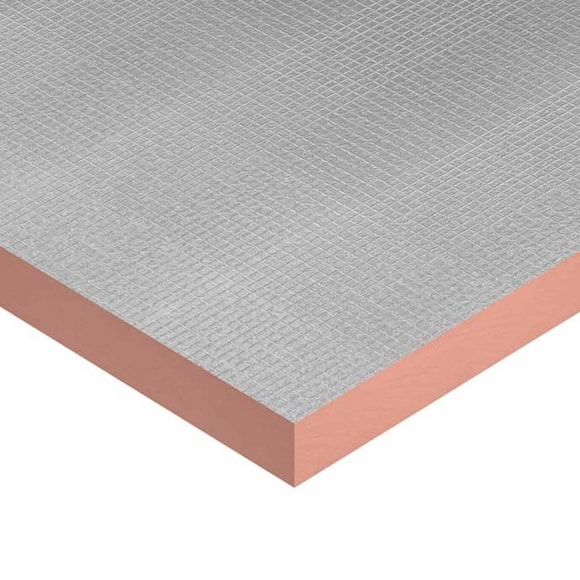 We at Buy Insulation Online are a leading supplier of phenolic foam insulation boards in the UK, offering a wide range of products from Kingspan, one of the world’s leading manufacturers of phenolic foam insulation. Some of the products that are available from our website Buy Insulation Online are:
We at Buy Insulation Online are a leading supplier of phenolic foam insulation boards in the UK, offering a wide range of products from Kingspan, one of the world’s leading manufacturers of phenolic foam insulation. Some of the products that are available from our website Buy Insulation Online are:
- Kooltherm K103 Floorboard: Discover Kingspan Kooltherm K103 Floorboard, a premium phenolic foam insulation offering exceptional thermal performance with a low thermal conductivity of 0.019 W/mK. Ideal for new builds and renovations, this insulation boasts high compressive strength, making it perfect for various applications while maintaining structural integrity. Its moisture-resistant, fibre-free core ensures optimal resistance to water ingress and prevents mould growth. Achieve target U-values effortlessly with this eco-friendly, NBS and BBA-certified insulation. Available in 50mm, 75mm, and 100mm thicknesses, this lightweight solution enhances energy efficiency, providing unmatched insulation for diverse floor types and delivering substantial energy savings.
- Kingspan K108 Phenolic Foam Cavity Wall Insulation: Kingspan K108 Phenolic Foam Cavity Wall Insulation is a cutting-edge solution for insulating external masonry walls. Engineered with high-performance phenolic foam, it offers exceptional thermal resistance (K-Value of 0.018 W/m.K), resulting in up to 40% energy savings. Its moisture-resistant properties prevent mould growth and water damage, ideal for humid climates. BBA-approved and designed for durability, this formaldehyde-free insulation ensures long-term mechanical resilience. With various thickness options, its thin profile maximizes space and natural light, meeting U-value targets effortlessly. Easy to install and environmentally conscious, this insulation strikes an optimal balance between energy efficiency and cost savings for homeowners seeking superior cavity wall insulation.
- Kingspan Aluminium-Faced Phenolic Insulation Board: Kingspan's Aluminium-Faced Phenolic Duct Insulation Board, sized at 1.2M x 600mm, offers top-notch thermal insulation for ductwork and associated equipment, indoors or outdoors. With a fire performance rating of B,s2,d0 and a low thermal conductivity of 0.022 W/mK, these boards minimize heat loss effectively. Crafted from durable, chemically inert phenolic foam, they feature an aluminium foil facing ensuring moisture resistance and a glass tissue-based facing for added protection. Lightweight, easy to handle, and install, these boards boast high compressive strength, safeguarding against heavy loads in HVAC applications. With accreditation to various quality, environmental, safety, and energy management standards, Kingspan's Phenolic Duct Insulation Boards stand out for their efficiency, durability, and ease of use.
How to install phenolic foam insulation?
Phenolic foam insulation can be installed in different ways, depending on the application and the product. However, some general guidelines for installing phenolic foam insulation are:
- Prepare the surface: The surface where the phenolic foam insulation board will be installed should be clean, dry, flat, and free of any defects, such as cracks, gaps, or protrusions. Any existing insulation or vapour barriers should be removed or repaired, if necessary. The surface should also be compatible with the adhesive or fixings that will be used to attach the phenolic foam insulation board.
- Measure and cut the board: The phenolic foam insulation board should be measured and cut to the required size and shape, using a sharp knife or a saw. The board should be cut slightly smaller than the actual dimensions of the surface, to allow for expansion and contraction. The board should also be cut to fit around any obstacles, such as pipes, wires, or vents.
- Apply the adhesive or fixings: The adhesive or fixings that will be used to secure the phenolic foam insulation board to the surface should be applied according to the manufacturer’s instructions. The adhesive or fixings should be compatible with the phenolic foam insulation board and the surface material and should provide adequate strength and durability. The adhesive or fixings should be applied evenly and uniformly and should cover the entire area of the board.
- Position and press the board: The phenolic foam insulation board should be positioned and pressed firmly onto the surface, ensuring that there are no gaps or air pockets between the board and the surface. The board should be aligned with the edges and corners of the surface and should be level and flush with the adjacent boards. The board should be held in place until the adhesive or fixings are set, and any excess adhesive or fixings should be removed.
- Finish the installation: The phenolic foam insulation board should be inspected and checked for any defects, such as cracks, gaps, or misalignment. Any defects should be repaired or replaced, if necessary. The phenolic foam insulation board should also be covered with a suitable finish, such as plasterboard, plywood, or metal, depending on the application and preference. The finish should be attached to the phenolic foam insulation board with appropriate fixings and should be sealed and painted if required.
Conclusion
Phenolic foam insulation is a high-performance insulation material that can provide many benefits for various applications, such as roofs, walls, floors, and ducts. Phenolic foam insulation has a low thermal conductivity, high moisture resistance, excellent fire performance, and a low environmental impact. Phenolic foam insulation can also be installed easily and quickly, with minimal waste and space.
We at Buy Insulation Online offer a wide range of phenolic foam insulation boards from Kingspan, one of the world’s leading manufacturers of phenolic foam insulation. If you are looking for a reliable and affordable supplier of phenolic foam insulation boards in the UK, you can visit our website Buy Insulation Online and browse our products and prices.
